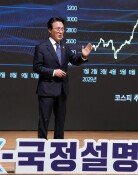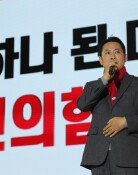Broader definition of ordinary wages leads to 16% rise in labor costs
Broader definition of ordinary wages leads to 16% rise in labor costs
Posted September. 04, 2013 04:49,
The Korea Chamber of Commerce has filed a petition for a fair judgment to the Supreme Court on Tuesday in the run-up to an open proceeding on ordinary wages. The petition was signed by Park Yong-mann, the president of the Korea Chamber of Commerce and the Seoul Chamber of Commerce, and all presidents of 71 chambers of commerce including Busan, Daegu, Incheon, and Gwangju nationwide.
For decades, companies have complied with laws the government guidelines, and court rulings that the money and goods with a payment interval of more than one month are excluded from ordinary wages, the group of presidents said, adding, We hope a ruling decision based on the rule of law and the principle of trust protection. Lee Dong-geun, the standing vice president of the Korea Chamber of Commerce, who submitted the petition on behalf of the group of presidents, said, If even enforcement decrees, not to mention laws, had clearly defined the range of ordinary wages, this would not have happened. Some claims that we should file a claim for damages to the government if we lose the lawsuit.
The current Labor Standard Act has no definition of ordinary wages and its enforcement decree simply defines them as a fixed amount that is paid to employees on a regular basis such as hourly, daily, weekly, or monthly, or a contract amount. Accordingly, employers have calculated ordinary wages with monthly salary based on the labor-management agreement. But as the Supreme Court ruled that regular bonuses are included in ordinary wages in March last year, some companies face lawsuits filed by labor unions claiming that employers should recalculate ordinary wages and pay their employees overdue pays.
If bonuses are included in ordinary wages, the standard of overtime pay would increase to a significant rise in labor costs. Korea Employers Federation forecasts that the first years additional labor costs and three years of back pays would add up to 38.55 trillion won (35.09 billion U.S. dollars). The Korea Chamber of Commerce expects labor costs will increase an average of 16 percent per company.
A survey found that an increased scope of ordinary wages would have a negative impact on employment. The Korea Chamber of Commerce surveyed 126 small and medium-size manufacturers from August 26 through 30, and 65.1 percent of the respondents said if the scope of ordinary wages increases, they would reduce new employment. Some 19.8 percent of the respondents said that they would reduce existing employees. If companies lose in the lawsuit on ordinary wages, three years of back pays will worth 1.19 billion won (1.08 million dollars) per company, an amount that is equivalent to 42.9 percent of the average operating profit for the recent three years.







